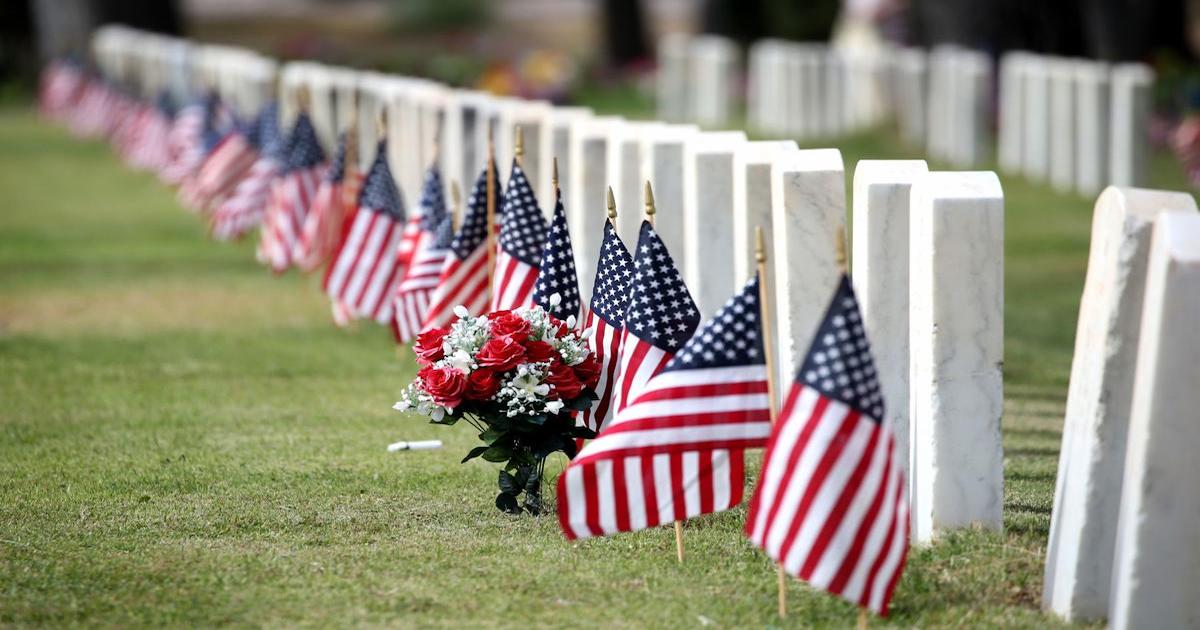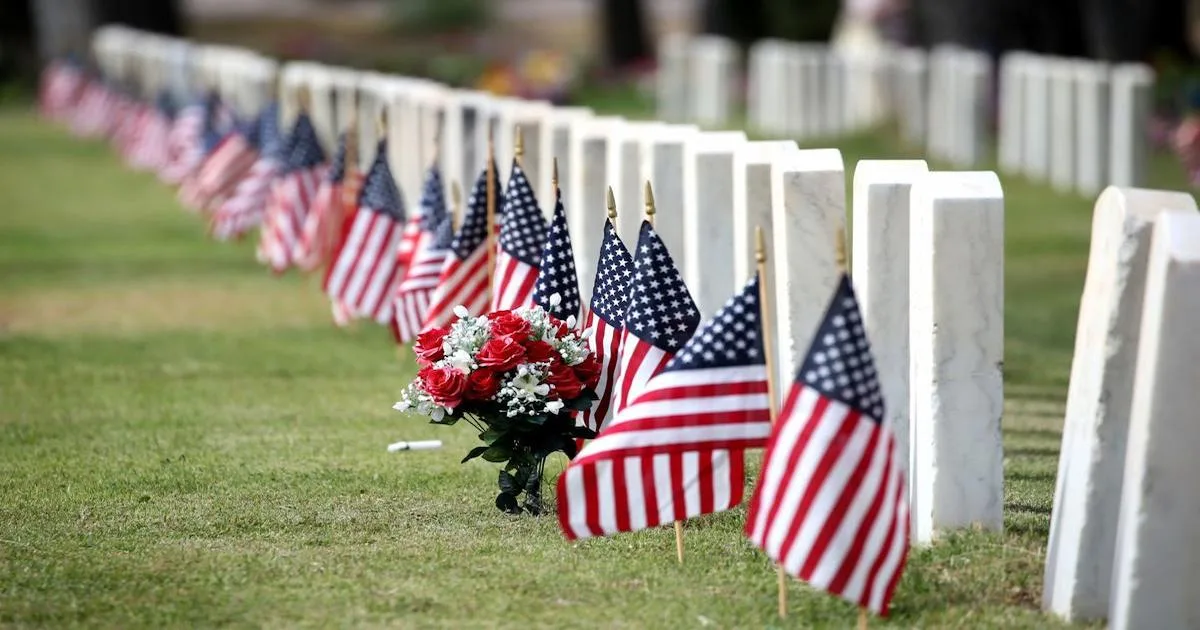“Explore the rich history of Memorial Day, a solemn occasion dedicated to honoring and remembering the brave individuals who sacrificed their lives in service to their country. Learn about the origins, evolution, and significance of this cherished day of remembrance. Join us as we pay tribute to the heroes who have defended our freedom. #Memorial Day“

Memorial Day is a revered holiday in the United States, observed on the last Monday of May each year. It serves as a poignant reminder of the ultimate sacrifices made by men and women in uniform who have bravely defended their country. This blog post delves into the history of Memorial Day, shedding light on its origins and evolution, and highlighting the significance of this solemn occasion.
Memorial Day History
- The Origins of Memorial Day: The roots of Memorial Day can be traced back to the aftermath of the American Civil War. In 1865, in Charleston, South Carolina, freed slaves organized the first known observance called “Decoration Day.” They honored Union soldiers by adorning their graves with flowers, a heartfelt gesture of remembrance and gratitude.
- Spreading Recognition and Remembrance: The practice of decorating the graves of fallen soldiers spread across the country, becoming an annual observance in various communities. The day was referred to as “Decoration Day” and was held on different dates, depending on local customs. It served as a way for communities to heal, unite, and honor their fallen heroes.
- Official Recognition and Name Change: In 1868, General John A. Logan, the commander-in-chief of the Grand Army of the Republic, issued an order designating May 30th as Decoration Day. This date was chosen because it did not coincide with any significant battle anniversary. The name “Memorial Day” gradually gained popularity and was commonly used alongside “Decoration Day.”
- Memorial Day‘s Connection to World War I: Following the devastation of World War I, Memorial Day transformed into a day to honor the fallen from all American wars. The solemn observance expanded its scope to include those who had made the ultimate sacrifice beyond the Civil War. The day became an opportunity to recognize and express gratitude for the sacrifices of soldiers across generations.
- The Evolution into a National Holiday: In 1971, Memorial Day was officially declared a federal holiday, to be observed on the last Monday in May. This change aimed to create a three-day weekend and provide an opportunity for Americans to reflect, pay tribute, and spend time with family and loved ones.
- Memorial Day Today: Today, Memorial Day has become deeply ingrained in American culture. It serves as a time for remembrance, reflection, and gratitude. Communities across the nation hold parades, ceremonies, and memorial services to honor the fallen. Many visit cemeteries to place flags, flowers, and wreaths on gravesites, preserving the tradition of Decoration Day.
As Memorial Day approaches each year, it is vital to remember and honor the true essence of the day. It is a time to pay tribute to the courageous men and women who selflessly laid down their lives in service to their country. By reflecting on the history of Memorial Day and participating in meaningful observances, we ensure that their sacrifices are never forgotten. Let us pause, remember, and express our eternal gratitude to these heroes who have made the ultimate sacrifice. #Memorial Day
Memorial Day quotes
- “The legacy of heroes is the memory of a great name and the inheritance of a great example.” – Benjamin Disraeli
- “Our nation owes a debt to its fallen heroes that we can never fully repay, but we can honor their sacrifice.” – President Barack Obama
- “The brave die never, though they sleep in dust: Their courage nerves a thousand living men.” – Minot J. Savage
- “They hover as a cloud of witnesses above this Nation.” – Henry Ward Beecher
- “The willingness of America’s veterans to sacrifice for our country has earned them our lasting gratitude.” – Jeff Miller
- “A hero is someone who has given his or her life to something bigger than oneself.” – Joseph Campbell
- “Freedom makes a huge requirement of every human being. With freedom comes responsibility.” – Eleanor Roosevelt
- “The greatest glory of a free-born people is to transmit that freedom to their children.” – William Havard
- “Courage is contagious. When a brave man takes a stand, the spines of others are often stiffened.” – Billy Graham
- “Our flag does not fly because the wind moves it… it flies with the last breath of each soldier who died protecting it.” – Unknown
- “In the end, we will remember not the words of our enemies, but the silence of our friends.” – Martin Luther King Jr.
- “Patriotism is not short, frenzied outbursts of emotion, but the tranquil and steady dedication of a lifetime.” – Adlai Stevenson II
- “The price of freedom is eternal vigilance.” – Thomas Jefferson
- “My fellow Americans, ask not what your country can do for you, ask what you can do for your country.” – John F. Kennedy
- “They are dead; but they live in each Patriot’s breast, and their names are engraven on honor’s bright crest.” – Henry Wadsworth Longfellow
- “For love of country, they accepted death.” – James A. Garfield
- “We come, not to mourn our dead soldiers, but to praise them.” – Francis A. Walker
- “The cost of freedom is always high, but Americans have always paid it. And one path we shall never choose, and that is the path of surrender or submission.” – John F. Kennedy
- “Freedom is never more than one generation away from extinction. We didn’t pass it to our children in the bloodstream. It must be fought for, protected, and handed on for them to do the same.” – Ronald Reagan
- “The brave men, living and dead, who struggled here, have consecrated it far above our poor power to add or detract. The world will little note, nor long remember what we say here, but it can never forget what they did here.” – Abraham Lincoln
Memorial Day related facts
- Memorial Day is observed on the last Monday of May each year in the United States.
- The holiday originated as Decoration Day after the American Civil War, primarily to honor Union soldiers who died in the conflict.
- The first widely recognized observance of Decoration Day took place on May 30, 1868, when flowers were placed on the graves of Union and Confederate soldiers at Arlington National Cemetery.
- It wasn’t until after World War I that Memorial Day expanded to honor all American military personnel who died in any war or military action.
- In 1971, Memorial Day became a federal holiday and was moved to the last Monday in May to create a three-day weekend.
- Red poppies are a symbol of remembrance for Memorial Day, inspired by the famous war poem “In Flanders Fields” by Lieutenant Colonel John McCrae.
- Each year on Memorial Day, the President of the United States participates in a wreath-laying ceremony at the Tomb of the Unknown Soldier in Arlington National Cemetery.
- Memorial Day weekend is often considered the unofficial start of the summer season, and many people celebrate with barbecues, picnics, and outdoor activities.
- The National Moment of Remembrance was established by Congress in 2000. It encourages all Americans to pause for a moment of silence at 3:00 PM local time on Memorial Day to remember and honor the fallen.
- Flags are flown at half-staff until noon on Memorial Day, then raised to full-staff for the remainder of the day.
- The “National Memorial Day Concert” is held on the West Lawn of the U.S. Capitol in Washington, D.C., and is broadcast live on television each year.
- The Indianapolis 500, one of the most prestigious auto races in the world, is held annually on Memorial Day weekend.
- In addition to Arlington National Cemetery, there are numerous other national cemeteries across the United States where veterans are buried and honored on Memorial Day.
- The tradition of wearing a red poppy on Memorial Day originated from the poem “In Flanders Fields” and is popularized by the American Legion Auxiliary.
- Many communities and organizations hold parades, memorial services, and ceremonies to honor the fallen and show gratitude for their sacrifices on Memorial Day.
Memorial Day related FAQs
When is memorial day
Memorial Day is observed on the last Monday of May each year.
What is memorial day
Memorial Day is a national holiday in the United States observed on the last Monday of May each year. It is a day of remembrance and tribute to the men and women who have died in military service to the country. The holiday originated after the American Civil War to honor Union soldiers, but it expanded to honor all American military personnel who sacrificed their lives in any war or military action. On Memorial Day, people visit cemeteries and memorials to pay their respects and place flowers or flags on the graves of fallen soldiers. It is also a time for communities to come together for parades, ceremonies, and moments of silence to honor and reflect upon the sacrifices made by those who served.
What is the significance of Memorial Day?
Memorial Day holds significant importance as a day to honor and remember the courageous men and women who sacrificed their lives while serving in the military. It is a time to pay tribute to their bravery, reflect on their sacrifices, and express gratitude for their selfless service.
How did Memorial Day originate?
Memorial Day originated after the American Civil War, with the earliest observances organized by freed slaves in Charleston, South Carolina. It gradually spread across the nation, and in 1868, General John A. Logan designated May 30th as Decoration Day, later known as Memorial Day.
